
A high-profile Houston burger joint, which is known for its unabashed political branding, has recently closed its doors, just five months after opening. The sudden closure has left customers and local observers confused, with no official explanation posted by the business.
The closure comes amid mounting legal and immigration troubles for the restaurant’s owner, Roland Beainy, but the full story remains under wraps. What led to this rapid fall from viral fame to vacant storefronts?
Viral Rise, Swift Fall

In April 2025, Trump Burger opened a location in Houston, Texas, drawing attention from supporters and critics with its red, white, and blue décor and menu items named after President Donald Trump.
The restaurant was billed as “a patriotic haven for burger lovers,” and quickly became a local sensation, attracting tourists and media attention. But on Friday, October 10, The Independent reported that the Google listing for Trump Burger on Chimney Rock Road in Houston showed the restaurant as “temporarily closed.”
Founder’s American Dream
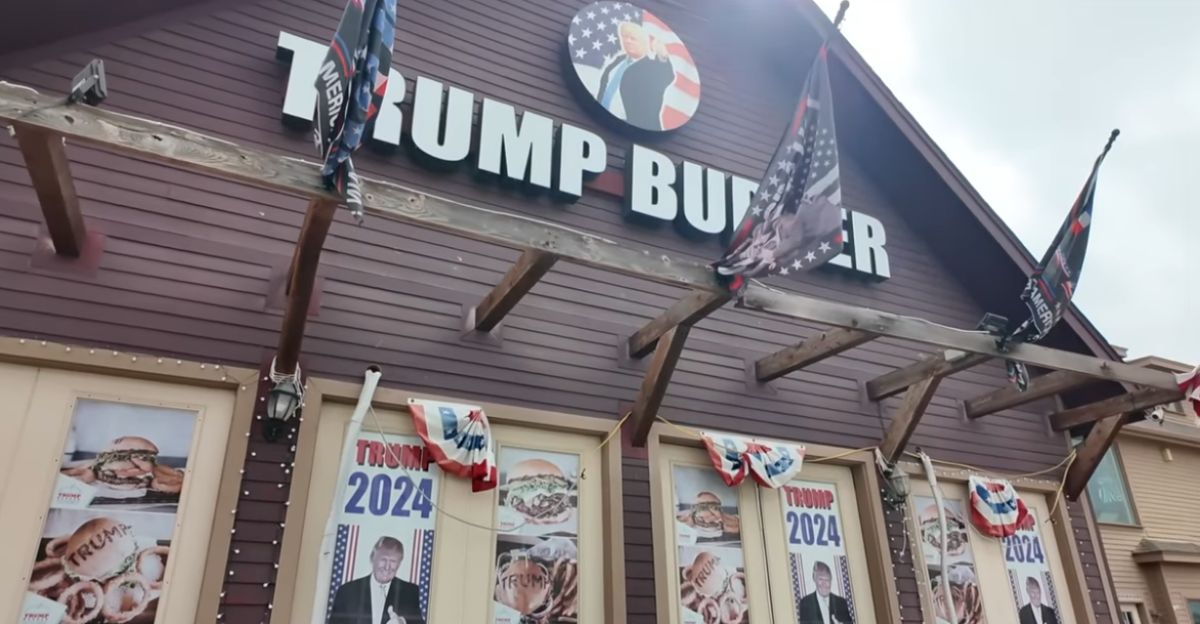
The chain was founded by Roland Beainy, a Lebanese immigrant who saw the restaurant as a business venture and a tribute to the American dream. Beainy, who arrived in the U.S. in 2019, publicly praised President Trump’s economic policies.
“Being an immigrant from a place where everything is bad and you work for almost $200, you see somebody like him to support the country and get the economy doing better. Me being an entrepreneur, I appreciate what he did,” Beainy told Chron.
Legal Storm Clouds

However, as Trump Burger expanded across Texas, Beainy faced a growing list of legal challenges. Lawsuits over franchise operations and lease disputes plagued the business.
What’s worse is that federal authorities began investigating Beainy for alleged immigration violations. The U.S. Department of Homeland Security accused him of overstaying his visa.
ICE Arrests Owner

The turning point came when U.S. Immigration and Customs Enforcement (ICE) arrested Roland Beainy for allegedly overstaying his visa, which had expired in February 2024.
“Beainy is a 28-year-old illegal alien from Lebanon who entered the United States in 2019 as a non-immigrant visitor, but he failed to depart by 12 February 2024, as required under the terms of his admission. ICE officers arrested him on 16 May 2025, and he was placed into immigration proceedings,” ICE revealed. “On 13 June, an immigration judge granted his request for bond while he undergoes his proceedings.”
Houston Feels the Impact
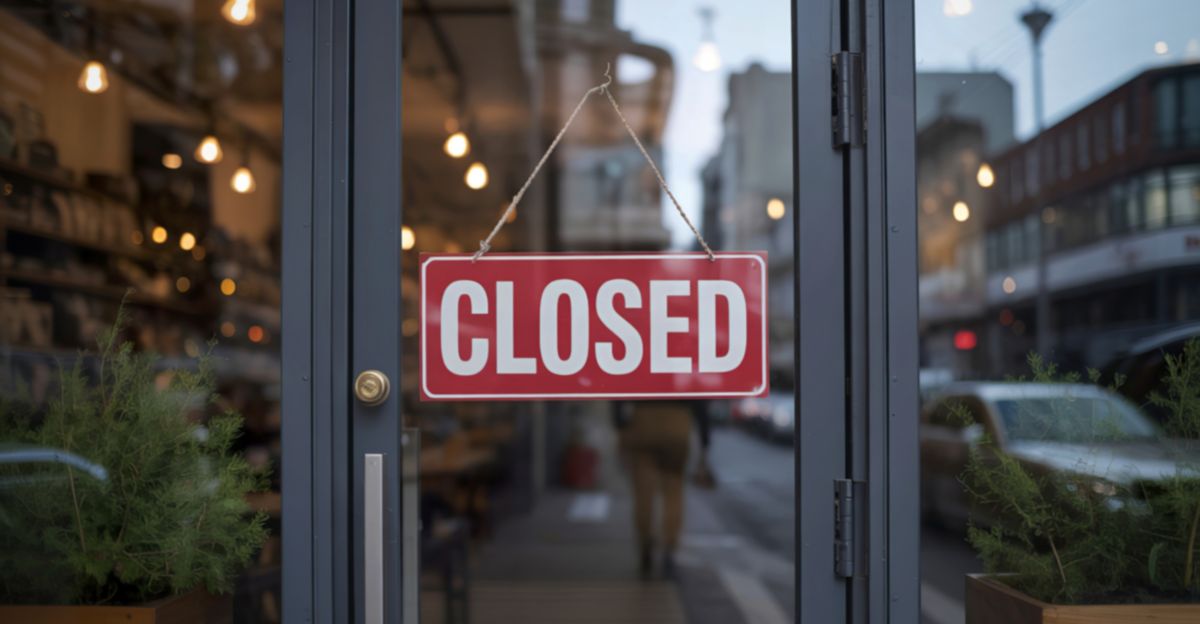
The Houston closure marks the shuttering of one of the chain’s four Texas locations, which is a significant blow to its regional footprint. Local reporters found the restaurant dark during peak hours, with a “Closed” sign taped to the door and no staff in sight.
Online listings now describe the location as “temporarily closed,” but there is no indication of when or if it will open again.
Human Cost of Enforcement

The situation shows how federal immigration enforcement can disrupt small businesses overnight, leading to sudden job losses and the disappearance of a valued community gathering place.
Beainy’s supporters have questioned whether his political alignment played a role in his arrest, but ICE officials stress that enforcement actions are based solely on immigration status, not beliefs.
Competitors Watch and Wait
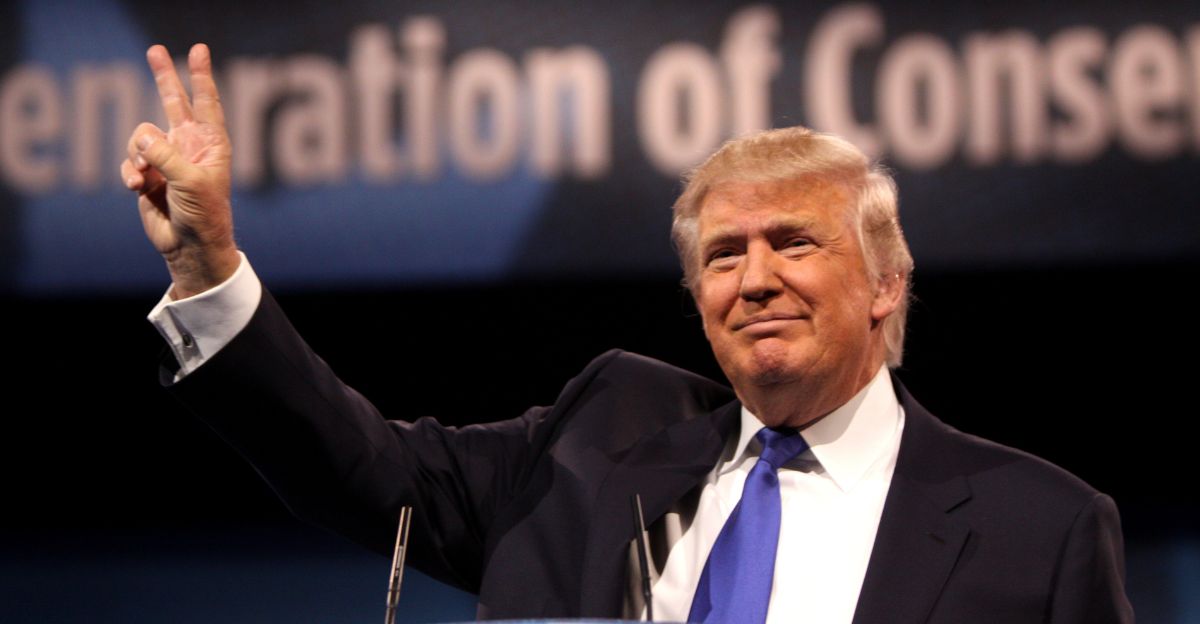
As Trump Burger’s Houston location sits vacant, competitors are closely watching the situation. Some see an opportunity to attract displaced customers, while others worry about the chilling effect of high-profile enforcement on immigrant entrepreneurs.
The closure also raises questions about the risks of tying a business’s identity to polarizing political figures, especially in a diverse and politically mixed city like Houston.
No One Is Exempt

ICE has made it clear that no one is exempt from immigration enforcement, regardless of their business or political views.
“Under the current administration, ICE is committed to restoring integrity to our nation’s immigration system by holding all individuals accountable who illegally enter the country or overstay the terms of their admission. This is true regardless of what restaurant you own or political beliefs you might have,” DHS said in a statement to The Post, according to The New York Post.
Branding Backfires

The Trump Burger saga shows the risks of building a brand around a divisive political figure. While the restaurant’s bold branding initially drew crowds and media attention, it also made the business a lightning rod for controversy.
Now, the very “America First” rhetoric that fueled its rise has become a source of irony, as the owner faces deportation from the country he once marketed as “great again.”
Franchisee Frustration

With the Houston location closed and the owner embroiled in legal proceedings, franchisees and employees are left in limbo. The Trump Burger team has issued no formal statement, and attempts to contact management have gone unanswered.
The uncertainty has sparked frustration among staff who relied on the business for their livelihoods, with no clear path forward.
Leadership Vacuum
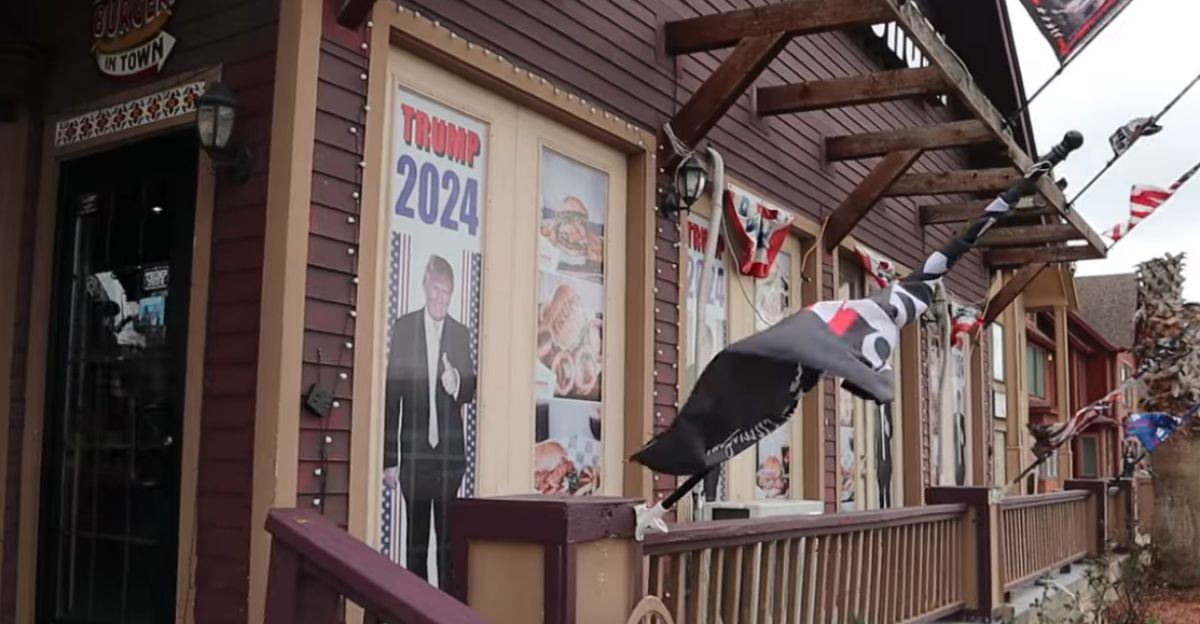
The arrest and possible deportation of Roland Beainy have created a leadership vacuum at Trump Burger. With the founder unable to oversee operations, the chain’s future is increasingly uncertain.
There is no public indication of a succession plan or interim management, leaving the brand’s fate uncertain as legal and immigration proceedings continue.
A Comeback Is Unlikely

Despite early expansion plans, Trump Burger’s prospects for a comeback appear dim. All Texas locations are now closed, and the brand’s association with ongoing legal and immigration troubles makes a revival unlikely.
Industry analysts note that the combination of regulatory scrutiny, leadership instability, and polarized branding creates significant hurdles for any potential reboot.
“A Sham”

Federal officials also revoked Beainy’s application for immigration status after his own family admitted that his marriage had been “a sham designed to game the system,” according to the Department of Homeland Security.
“The Department of Homeland Security has zero tolerance for immigration fraud, and this individual’s claims are baseless,” DHS said. “This person has no Green Card, a history of illegal marriages, and an assault charge. DHS is actively pursuing all legal avenues to address this flagrant abuse of our immigration laws,” the agency added. Beainy’s immigration hearing is scheduled for November 18.
What Comes Next?
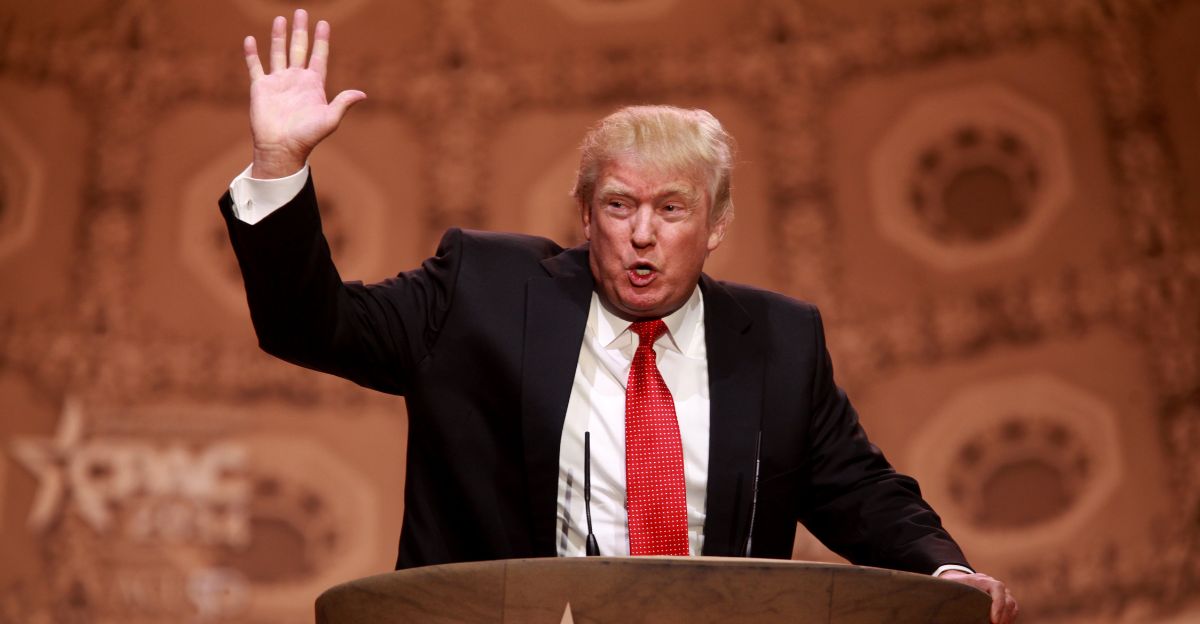
The Trump Burger story raises broader questions about the intersection of immigration enforcement and small business viability in America. As federal agencies tighten oversight, how many other entrepreneurs could face similar disruptions?
And in an era of heightened political polarization, what are the risks and rewards of building a brand around a controversial figure? The answers could shape the next chapter for immigrant-owned businesses across America.